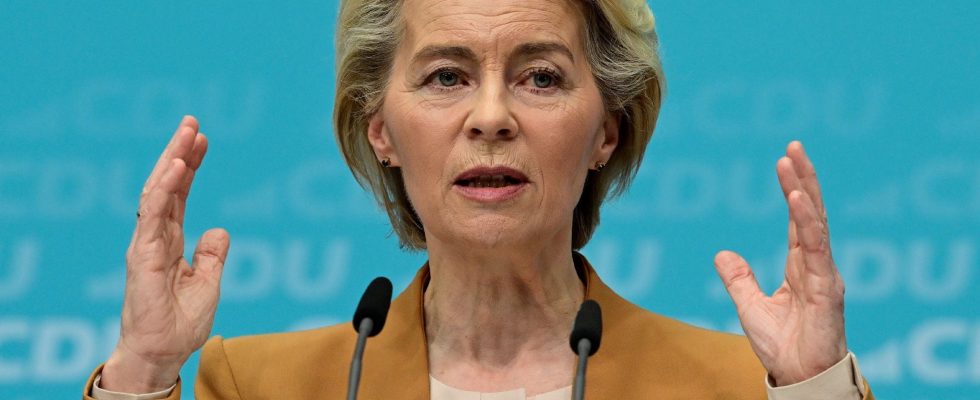This proposal comes against the backdrop of a movement of anger among farmers across Europe. The President of the European Commission Ursula von der Leyen proposed, Thursday March 21, to impose customs duties on cereals coming from Russia, although they are currently exempt, to the great dismay of EU farmers.
“We have prepared a proposal to increase customs duties on imports of Russian and Belarusian cereals, oilseeds and derived products. This will prevent Russian cereals from destabilizing the European market for these products,” said Ursula Von der Leyen, during a press conference at the end of the first day of a summit of EU heads of state and government in Brussels.
This measure will deprive Russia of revenues from these exports and “will ensure that illegal exports of Ukrainian grain stolen by Russia do not enter the EU market”, stressed the Commission President.
It must be ratified by 15 countries
It must be ratified by a qualified majority of Member States, i.e. at least 15 countries representing 65% of the EU population. Under World Trade Organization (WTO) rules, Russian agricultural products are so far exempt from customs duties in the EU.
In the various sets of sanctions adopted against Moscow after the invasion of Ukraine in February 2022, the Europeans were careful not to target either the agricultural sector or fertilizers. They feared destabilizing grain trade around the world and weakening the food security of third countries in Asia and Africa, very dependent on Russian agricultural power.
But this opening to Russian imports irritates kyiv. “We note that, unfortunately, Russia’s access to the European agricultural market remains unlimited,” lamented Ukrainian President Volodymyr Zelensky on Thursday during a videoconference with the Twenty-Seven. “When Ukrainian grain is thrown onto the roads (by disgruntled Polish farmers, editor’s note), Russian and Belarusian products continue to be transported to Europe […] It’s unfair,” he said.
Countries call for complete ban
The Czech Republic, Poland and the three Baltic states are even calling for a complete ban on grain imports from Russia and Belarus. “We consider it imperative to fulfill our moral obligation to block any activity that could potentially strengthen” Russia, the agriculture ministers of these five states declared this week.
Last month, Latvia already banned the import of food products from Russia and Belarus. According to these five countries, the EU imported 1.53 million tonnes of cereals from Russia for an amount of 437.5 million euros in 2023 – levels at least ten times lower than the volumes imported from Ukraine and which represent a tiny share of EU consumption.
However, European grain producers, particularly in France, are worried about seeing Russia drag down world prices and upset trade balances. Encouraged by kyiv’s difficulties in delivering its grains and oilseeds, Moscow has in fact launched a vast commercial offensive in Africa and the Middle East.
